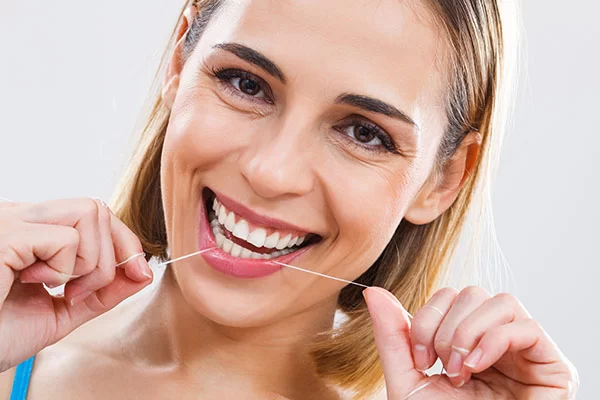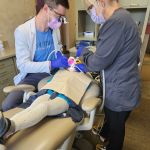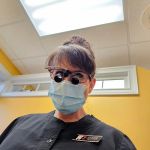
- Importance-of-Oral-Hygiene-for-Adults
- Daily-Routines-for-Effective-Adult-Oral-Care
- Nutrition-and-Lifestyle-Impact-on-Oral-Health
- Common-Adult-Dental-Issues-and-Prevention
- Professional-Care-and-Products-Recommendations
1. The Importance of Oral Hygiene for Adults
Oral hygiene is more than just a routine; it’s a foundation for overall health, especially for adults who often face a variety of dental challenges. Unlike children, adults experience cumulative effects of diet, lifestyle, and aging on their teeth and gums. Proper oral care can prevent tooth decay, gum disease, and even more serious health complications like heart disease or diabetes.
Understanding the unique oral hygiene needs in adulthood is critical. For instance, as gums recede naturally over time, they become more vulnerable to bacteria, increasing the risk of periodontal disease. Adults also often face the consequences of past neglect or habits such as smoking, which exacerbates oral health decline. This is why tailored oral hygiene tips for adults become essential—not only to maintain a bright smile but also to protect overall wellbeing.
Consider the case of Sarah, a 45-year-old office worker, who ignored gum bleeding and occasional tooth sensitivity for years. After developing periodontitis, she was forced into extensive dental treatments. Her story highlights how early intervention and consistent hygiene routines can prevent such costly outcomes.
2. Daily Routines for Effective Adult Oral Care
Building and maintaining effective oral hygiene habits require more than brushing twice a day. Adults should adopt a comprehensive dental care routine that addresses various aspects of oral health. The following sub-points illustrate key components of an optimal daily routine:
2.1 Brushing Technique and Frequency
Using a soft-bristled toothbrush, adults should brush for at least two minutes twice daily. The brushing technique matters—gentle circular motions rather than harsh scrubbing reduce enamel erosion and protect sensitive gums. Electric toothbrushes with built-in timers can help ensure adequate brushing time.
2.2 Flossing and Interdental Cleaning
Flossing daily is crucial to remove plaque and food particles from areas a toothbrush can’t reach. Many adults skip this step, leading to buildup and gum inflammation. Alternatives such as interdental brushes or water flossers can enhance plaque removal, especially for individuals with braces or bridges.
2.3 Mouthwash Use
Incorporating an antimicrobial mouthwash can reduce oral bacteria and freshen breath. However, mouthwash should complement brushing and flossing rather than replace them. Choosing an alcohol-free formula can prevent dryness, which often leads to discomfort.
2.4 Consistency and Monitoring
Keeping a regular schedule and monitoring any changes in oral health—such as bleeding, swelling, or persistent bad breath—allows adults to catch problems early. Recording symptoms and seeking timely professional advice can avoid escalation.
3. Nutrition and Lifestyle Impact on Oral Health
Oral health does not exist in isolation; diet and lifestyle choices deeply influence dental well-being. Understanding these impacts helps adults adopt habits that support long-term oral hygiene.
3.1 Balanced Diet for Strong Teeth
Consuming foods rich in calcium, phosphorus, and vitamins D and C strengthens teeth and gums. Dairy products, leafy greens, nuts, and citrus fruits are excellent choices. Conversely, frequent intake of sugary and acidic foods can accelerate enamel erosion and cavity formation.
3.2 Hydration and Saliva Production
Staying hydrated promotes saliva production, which naturally cleanses the mouth and neutralizes acids. Adults working long hours or in dry environments should be especially mindful of their water intake to maintain saliva balance.
3.3 Avoiding Harmful Habits
Smoking, excessive alcohol consumption, and teeth grinding severely damage oral tissues. Smokers, for example, have a higher risk of gum disease and oral cancers. Implementing strategies to quit smoking and managing stress to reduce grinding can dramatically improve oral outcomes.
4. Common Adult Dental Issues and How to Prevent Them
Adults face a variety of oral health issues beyond cavities, many of which can be prevented with proper care. Understanding these problems helps highlight why specific oral hygiene tips for adults are necessary.
4.1 Gum Disease
Periodontal disease starts with plaque buildup and can lead to gum recession, tooth loss, and systemic health complications. Prevention lies in diligent brushing, flossing, and regular dental checkups to remove tartar before damage occurs.
4.2 Tooth Sensitivity and Enamel Wear
With age and improper brushing techniques, enamel thins, exposing dentin and causing sensitivity. Using toothpaste formulated for sensitive teeth and avoiding abrasive brushing help mitigate discomfort.
4.3 Dry Mouth and Its Consequences
Medications and certain medical conditions can reduce saliva flow, leading to dry mouth. This condition increases the risk of decay and infections. Drinking water regularly and using saliva substitutes or specialized mouth rinses can alleviate symptoms.
5. Professional Care and Products Recommendations
While daily home care is fundamental, professional dental visits and quality products play a pivotal role in maintaining oral health.
5.1 Regular Dental Visits
Adults should visit their dentist at least twice a year for cleanings, examinations, and early detection of problems. Personalized advice during these visits can refine daily oral hygiene routines and prevent future issues.
5.2 Choosing the Right Products
Using toothpaste with fluoride, toothbrushes suited to your gum sensitivity, and floss types tailored to your dental condition are vital. For personalized recommendations and to find the best dental care products, Dentistry Toothtruth offers expert guidance and an extensive selection of items that cater specifically to adult oral health needs.
5.3 Professional Treatments
Procedures like deep cleaning, fluoride treatments, or sealants can provide extra protection for adults at higher risk of dental diseases. Consulting with a dentist helps identify if these interventions are necessary.
In summary, maintaining adult oral hygiene is a multifaceted process that blends effective daily care, nutritional awareness, lifestyle adjustments, and professional support. By integrating these strategies and seeking expert advice from resources like Dentistry Toothtruth, adults can achieve long-lasting dental health and a confident smile.







 Farrow Orthodontics - City Center5.0 (458 review)
Farrow Orthodontics - City Center5.0 (458 review) Smiles Orthodontics4.0 (158 review)
Smiles Orthodontics4.0 (158 review) Gentle Dental Rio Vista4.0 (152 review)
Gentle Dental Rio Vista4.0 (152 review) North Shore Smiles Pediatric Dentistry5.0 (52 review)
North Shore Smiles Pediatric Dentistry5.0 (52 review) Southill Dental Group5.0 (364 review)
Southill Dental Group5.0 (364 review) David K Buran, DMD5.0 (107 review)
David K Buran, DMD5.0 (107 review) The Importance of Oral Health Education During Pregnancy for a Healthy Pregnancy
The Importance of Oral Health Education During Pregnancy for a Healthy Pregnancy Best Tips for Brushing Your Teeth Properly for Healthy Gums: Essential Techniques for Oral Health
Best Tips for Brushing Your Teeth Properly for Healthy Gums: Essential Techniques for Oral Health Why Skipping Dental Checkups Can Lead to Bigger Oral Health Problems
Why Skipping Dental Checkups Can Lead to Bigger Oral Health Problems Advantages of Porcelain Dental Restorations
Advantages of Porcelain Dental Restorations How Can Diabetes Cause Tooth and Gum Problems? Preventing and Managing Oral Health Issues
How Can Diabetes Cause Tooth and Gum Problems? Preventing and Managing Oral Health Issues Healthy Habits for Promoting Good Oral Health and Hygiene: Tips for a Healthy Smile
Healthy Habits for Promoting Good Oral Health and Hygiene: Tips for a Healthy Smile